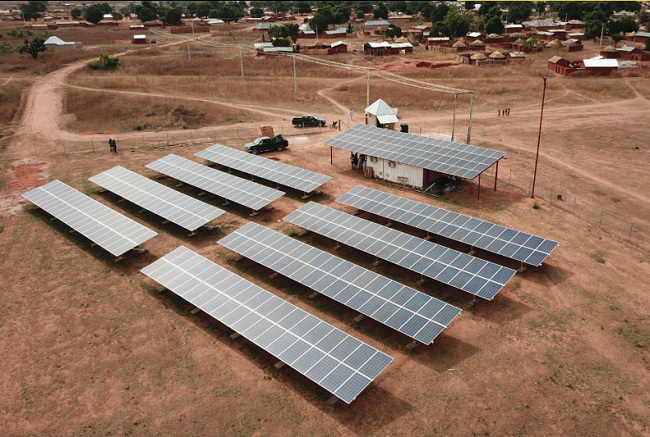Nigeria stands at a turning point. With ambitious targets for universal electricity access and clean energy adoption, the country’s renewable energy sector must scale up fast. But one stubborn obstacle continues to slow progress, the lack of affordable, naira-based concessional financing, especially for women, low-income consumers, and emerging enterprises.
While policymakers talk up renewable energy and pilot projects show promise, the ecosystem for local-currency concessional loans remains weak and underfunded. Institutions like the Bank of Industry, the Development Bank of Nigeria, and the Central Bank have rolled out some concessional facilities, but these remain a fraction of what is required. Industry estimates put Nigeria’s renewable energy financing gap at a staggering ₦11.4 trillion.

The shortfall is felt most sharply by early-stage developers and mini-grid operators working in rural communities. They often face high interest rates (running at high as 19 – 23%), short loan maturities (mostly below three years), rigid collateral demands, and repayment schedules that make long-term project viability difficult. Consumer finance schemes targeting bottom-of-the-pyramid households and women-led businesses exist, but they are either too small or difficult to access.
One major problem is that Nigerian lenders, from commercial banks to microfinance institutions, often lack the capital, and the appetite to issue large or long-term naira loans for renewable energy projects. Many financiers remain unfamiliar with the business models, viewing them as risky.
That perception is compounded by the profile of many developers who are mostly young, undercapitalised firms with limited collateral. Policy shifts and regulatory delays also add uncertainty, making banks even more cautious.
Projects aimed at last-mile rural electrification tend to deliver low returns in the short term, which is unattractive to profit-driven lenders unless external de-risking tools are in place. And with Nigeria’s renewable energy market still relatively young, the lack of proven, bankable projects only deepens investor hesitation.
A further gap exists in financial sector expertise. Many lenders have no in-house staff trained in renewable energy project finance. Data that captures the distinct needs of women entrepreneurs or poor consumers is rare, leading to products that inadvertently exclude them.
Some projects have bucked the trend. In 2023, four solar hybrid mini-grids in Osun State, developed through a public-private partnership between Aradel Renewables Limited and Concerto, brought reliable power to 1,200 homes. The scheme relied on blended finance, community engagement, and risk-sharing – demonstrating what is possible with the right mix of support.
In 2025, off-grid solar giant Sun King secured the naira equivalent of $80 million in local-currency loans for product deployment – a rare large-scale deal in the sector. Meanwhile, the African Climate Foundation and Konexa combined technical support with guarantees to unlock over $34 million in capital for Nigeria’s first private renewable energy trading platform.
Yet such examples remain exceptions rather than the norm.
For women-led businesses, the challenge is even greater. Only about 30% of climate finance for energy projects in Nigeria has any gender-sensitive component. Women-led renewable energy firms rarely secure major concessional loans, despite evidence that they often deliver higher repayment rates and broader community benefits.
Other countries offer valuable insights. Mexico and Morocco, for example, have used concessional loans from climate funds, first-loss guarantees, and gender-bond programmes to kickstart renewable markets, attract private investors, and build local expertise.
Around the world, blended finance, structured funds, and green bonds are helping bridge viability gaps and draw in institutional investors.
Analysts argue that Nigeria must act decisively. One proposed solution is a “Nigeria Renewable Energy Credit Facility” a Central Bank-led fund pooling capital from public, donor, and pension fund sources to provide long-term, low-interest naira loans.
Incentives for banks, such as regulatory mandates or preferential reserve ratios for renewable lending, could also push capital toward the sector.
Expanding credit guarantee schemes, introducing partial risk guarantees, and combining donor grants with private capital through blended finance models could further de-risk investments.
Dedicated “Gender and BoP Renewable Bonds” could earmark funds for women-led enterprises and community cooperatives, while pay-as-you-go models could help rural consumers afford clean power.
Capacity-building will be key. Financial institutions need training in renewable energy risk assessment and business models, while market aggregation platforms could pool smaller projects into portfolios that attract bigger investors.
Policymakers are also urged to fast-track frameworks for green bonds and securitization, collect gender-disaggregated financing data, and offer tax breaks or interest subsidies for inclusive projects.
Experts stress that intentional gender inclusion is not just a fairness issue but a growth driver. A minimum share of concessional and blended finance could be directed to women-led projects. Partnerships with civil society could help women entrepreneurs build investment readiness, increasing their success rates and community impact.
Unlocking naira-based concessional finance will not be easy, but the rewards are significant. Done right, it could close Nigeria’s energy access gap, create jobs, stimulate sustainable economic growth, and position the country as a leader in Africa’s clean energy revolution. The question now is whether policymakers and financiers are willing to take bold, targeted action – before the opportunity slips away.
By Clement Chisom John, Renewable Energy Association of Nigeria (REAN)
